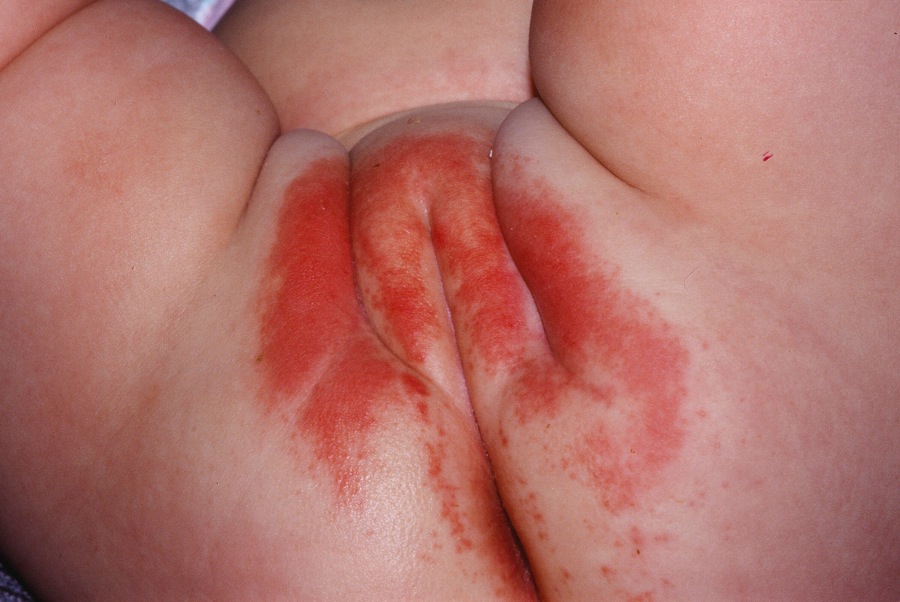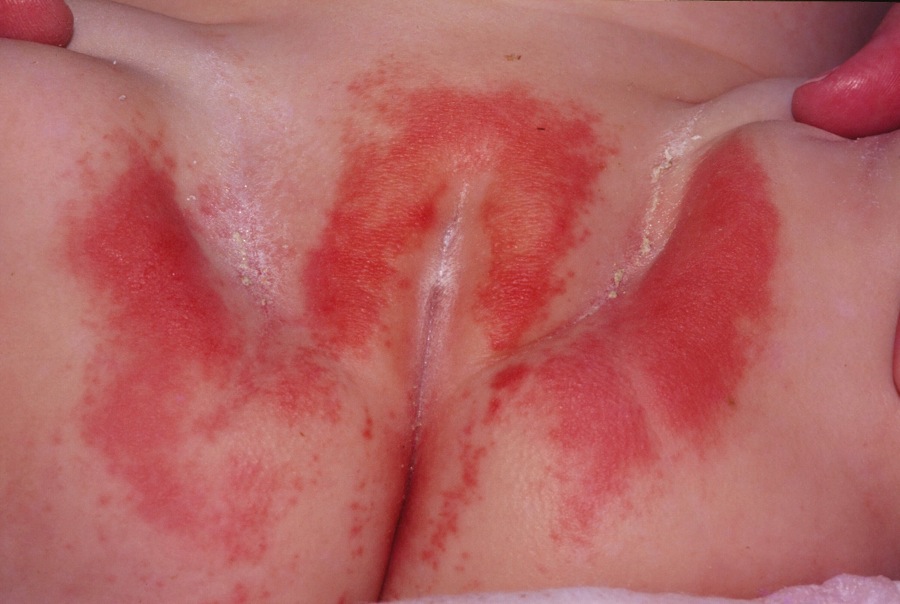

Note the sparing of the folds.
DIAPER DERMATITIS
Diaper dermatitis (DD) is an irritant dermatitis from the stool and urine and is worsened by maceration and friction.
- DD occurs most commonly in infants younger than 12 months of age.
- Exclusive breastfeeding plays a role in the prevention of DD, so mothers should be encouraged to breastfeed their babies.
- Secondary infection is common, particularly with Candida, Staphylococcus and Streptococcus.
- Within the differential diagnosis is infection with tinea, candida, allergic contact dermatitis and Langerhans cell histiocytosis..
- It is often pragmatic to try a topical antifungal first in the setting of a diaper rash and it not helful, then add/switch to a topical steroid.
Clinical
The diaper area is red and edematous although the flexures are usually spared (in contrast to seborrheic dermatitis in diaper dermatitis. The rash may sharply end at the edge of the diaper. A bout of diarrhea may bring on or exacerbate the condition. Satellite red follicular papules and pustules indicated Candida infection.
RegionalDerm
Who is Dr. White? | Privacy Policy | FAQs | Use of Images | Contact Dr. White
It is not the intention of RegionalDerm.com to provide specific medical advice, diagnosis or treatment. RegionalDerm.com only intends to provide users with information regarding various medical conditions for educational purposes and will not provide specific medical advice. Information on RegionalDerm.com is not intended as a substitute for seeking medical treatment and you should always seek the advice of a qualified healthcare provider for diagnosis and for answers to your individual questions. Information contained on RegionalDerm.com should never cause you to disregard professional medical advice or delay seeking treatment. If you live in the United States and believe you are having a medical emergency call 911 immediately.



